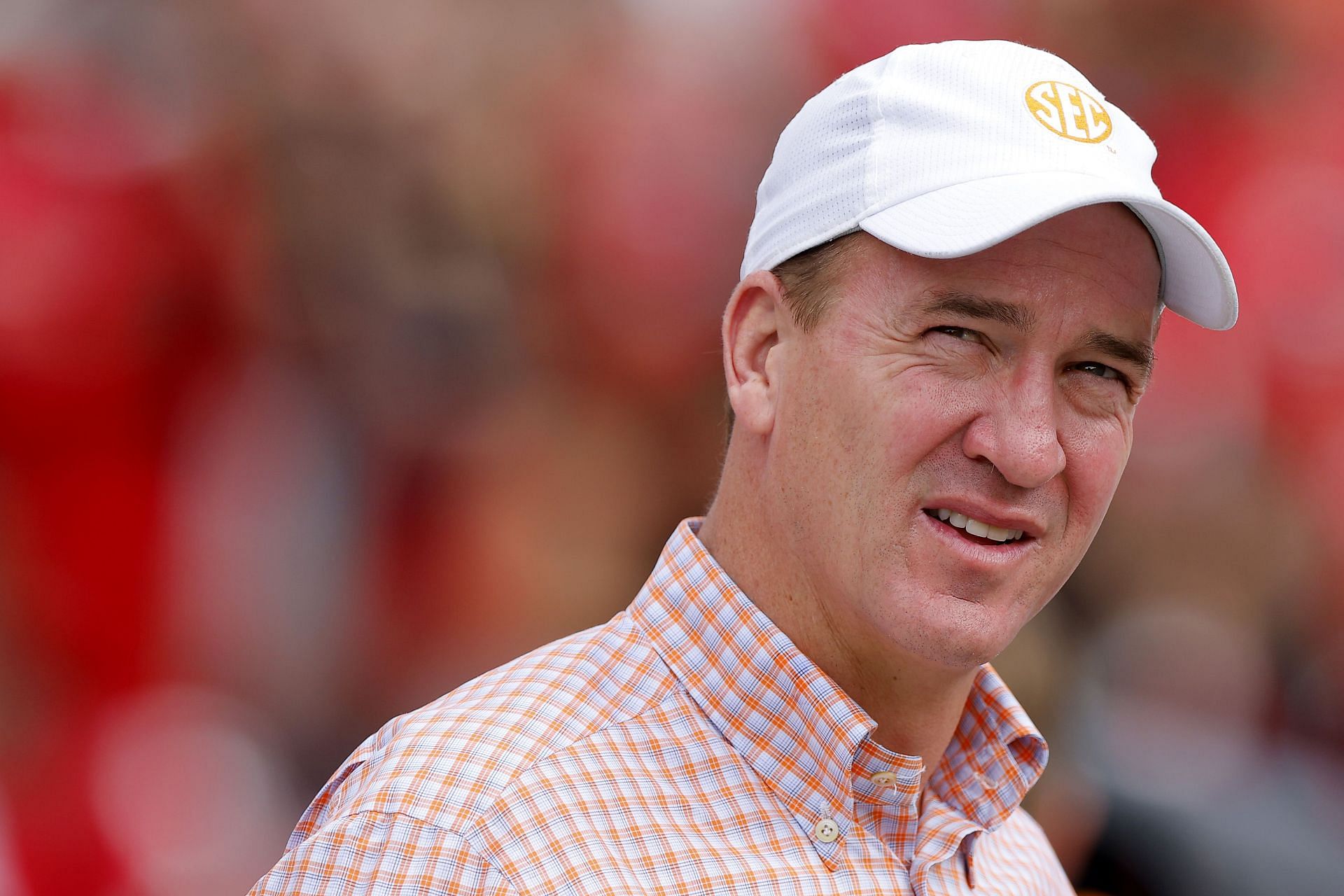
How Peyton Manning got worse in final years despite winning Super Bowl in 2015
When Peyton Manning was the same age that Patrick Mahomes and Joe Burrow right now, he dominated defenses across football. In his time in the NFL, he gleaned a reputation for being ruthless in his preparation and cunning on the field.
The quarterback could read defenses as well as any player in the NFL to a level that allowed him to almost see the future in a Jedi-like way. This led to a massive number of touchdowns and an almost NBA-like quality in being able to take over a game, no matter what anyone else on the team did.
If a receiver could run and catch a football, they could lead the game in touchdowns based on the quarterback's audibles. However, even the best in the game cannot beat time. Toward the end of his career, Peyton Manning's age began to catch up with him. Despite leading the NFL in touchdowns and setting the record for throwing touchdowns in a season in 2013, Manning retired just two seasons later.
As soon as he peaked, he began to erode. Here's a look at his final years, showing how his age caught up to him before the official end of his career.
How Peyton Manning's age obviously shut down his abilities

While the quarterback was able to hit 55 touchdowns and ten interceptions in 2013, his erosion began the day after he threw the 55th touchdown. In 2014, while still incredibly effective, he threw for 700 fewer yards and 16 fewer touchdowns, despite having roughly the same surrounding cast.
In fact, his teammates got better as the team added Emmanuel Sanders in time for the 2014 season to pair with the late Demaryius Thomas. Sanders and Thomas were one of the premier duos in the league at the time. Still, Manning took a step toward the dreaded cliff.
In 2015, he fell off it. He ended the regular season with nine touchdowns and 17 interceptions. From 2013 to 2015, he threw for 46 fewer touchdowns and seven more interceptions. The fall was stark.
His completion percentage also went in the tank as he went from a 68.3 percent completion percentage in 2013 to a 66.2 percent completion percentage. In 2015, he fell to 59.8 percent. In other words, he fell from peak Patrick Mahomes to become Zach Wilson.
When Manning broke his neck in 2011, many doubted whether he would play football again or, at least, if he would be able to play at a high level. He proved those doubters wrong during his time with the Denver Broncos, but the quarterback did eventually succumb to injury.
In his final season, the quarterback suffered from an injured foot that plagued him for the entire season. He played in ten games and started just nine of them in the Super Bowl-winning season. The quarterback's injury didn't knock him out of play, but his quality of play eventually led head coach Gary Kubiak to bench the quarterback for Brock Osweiler.
Manning eventually regained the starting role in Week 17 due to the struggling backup, but the message of where he was in his career was clear.
Peyton Manning eventually won a Super Bowl, but struggled mightily in the playoffs for the duration of his time in Denver. In 2012, the team succumbed to Joe Flacco because the quarterback couldn't move the ball in overtime.
In 2013, the Broncos hit a tsunami in Super Bowl 48 because Peyton Manning couldn't match the Seattle Seahawks and Russell Wilson in the 43-8 loss that almost immediately followed his record-setting 55th touchdown pass.
In 2014, he went 0-1, losing to Andrew Luck and the Indianapolis Colts in the team's first playoff game. In 2015, when the Broncos did eventually win the Super Bowl, most agree it was because one of the best defenses of the century held offenses to a halt. In his final playoff season, Peyton Manning threw for just two touchdowns and one interception in three games, completing 55.4 percent of his throws.